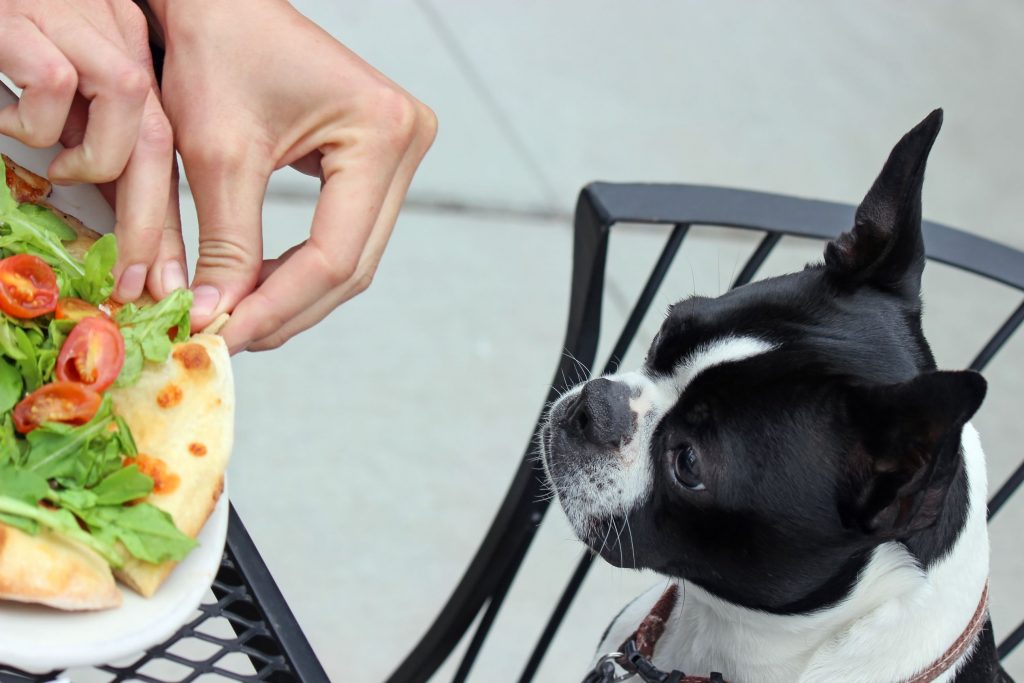Dogs follow their humans everywhere and nowhere is this truer than in the kitchen. Whether they’re underfoot during cooking or waiting to lick plates clean, dogs love to be part of mealtimes. And while many owners love to share food with their dogs, the results can be mixed. Some dogs may have stomachs of steel, while others have tummy troubles after just one bite of table scraps. How do you know if a bite of food is likely to cause a trip to the vet?
Why Should Dog Owners Limit Table Food?
Although every dog is different, there are good reasons table food should be limited:
- Some table food is toxic
Certain foods should never be fed to pets such as raisins, grapes, chocolate, alcohol and artificial sweeteners like xylitol. Onion and garlic should be avoided because they contain allium, which can damage your dog’s red blood cells. Rich, fatty foods can cause diarrhea, vomiting, and even pancreatitis.
If your pet shows any of these signs after eating, contact a vet immediately:
- Vomiting
- Diarrhea
- Abdominal pain
- Fever
- Dogs can have food allergies too
While relatively rare, food allergies or sensitivities are often related to animal meat proteins like beef or chicken. Spices like nutmeg and paprika can lead to GI problems. Many of the pre-made, packaged foods available are loaded with salt or other preservatives.
- Keep them on their best behavior
Unless you have a highly-trained pet that only eats on command, getting a taste for table food can lead to behavior problems. Your pup may beg or whine at you to share your food. Dogs can start stealing food off plates and some may refuse to eat their kibble.
- Extra food leads to weight gain
Whether from packaged treats or table scraps, it’s important to balance treats with meals. Dog treats and snacks should be no more than 10% of your dog’s food intake. Avoid food high in fat, sugar, and salt. No matter the source, too many calories leads to weight gain. Being overweight can lead to health concerns like heart failure, kidney disease, arthritis, and even a decreased life span.
Are Any Foods Safe?
While it’s good to be cautious about giving table scraps, there are safe ways to treat your dog with fresh foods.
- Offer lean, cooked meat like turkey, pork, chicken, or fish
- Fruits and vegetables such as blueberries, apples, green beans, and carrots are great choices
- Give high-value treats as part of training so your dog learns to work for a reward
If you have questions about what to feed your pet, reach out to the team at Clairmont Animal Hospital for advice. Call us at 404-633-6163 or schedule a visit with our vets for all of your pet health concerns.


